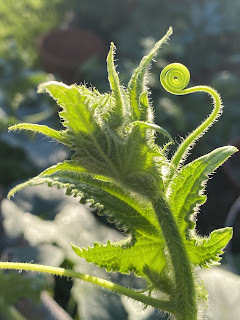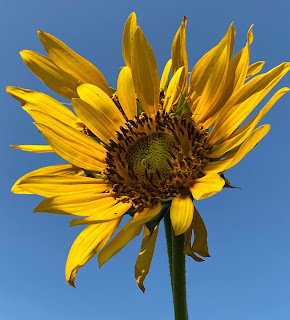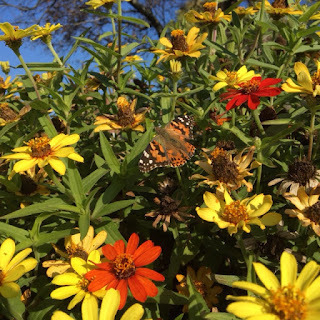gardening
One Word
One Word
One word to the finches
Who perch on my towering sunflowers,
Who fling golden petals,
Who drop a thousand husks
On the garden below.
Who dive at my coneflowers, talons out
And then peck and pull and shred
Those spiny, spiraled heads.
It is September now, but I know
That you and others of your kind
Will be back again, and again
Perching in the branches
All fall, and all winter too.
And you will continue to feast
On the dry seeds that remain.
What was a colorful garden is becoming
Your harvest meal, your stores for winter,
And you don't care how much I worked
To make this garden grow.
The earth I turned, the soil I amended,
The compost churned, the toil.
The seeds I raised inside while you sat
On brown stems, looking in my windows.
The seedlings planted, and watered,
And watched until they grew.
I have just one word for you:
Welcome.
When you leave today I'll gather
A few of those seeds myself
And I'll set them aside to dry
So that next spring you, and I
Can begin to grow again.
—-
David L. O'Hara
19 September 2020
Arachno-Drama In My Backyard (WARNING: Contains spider images)
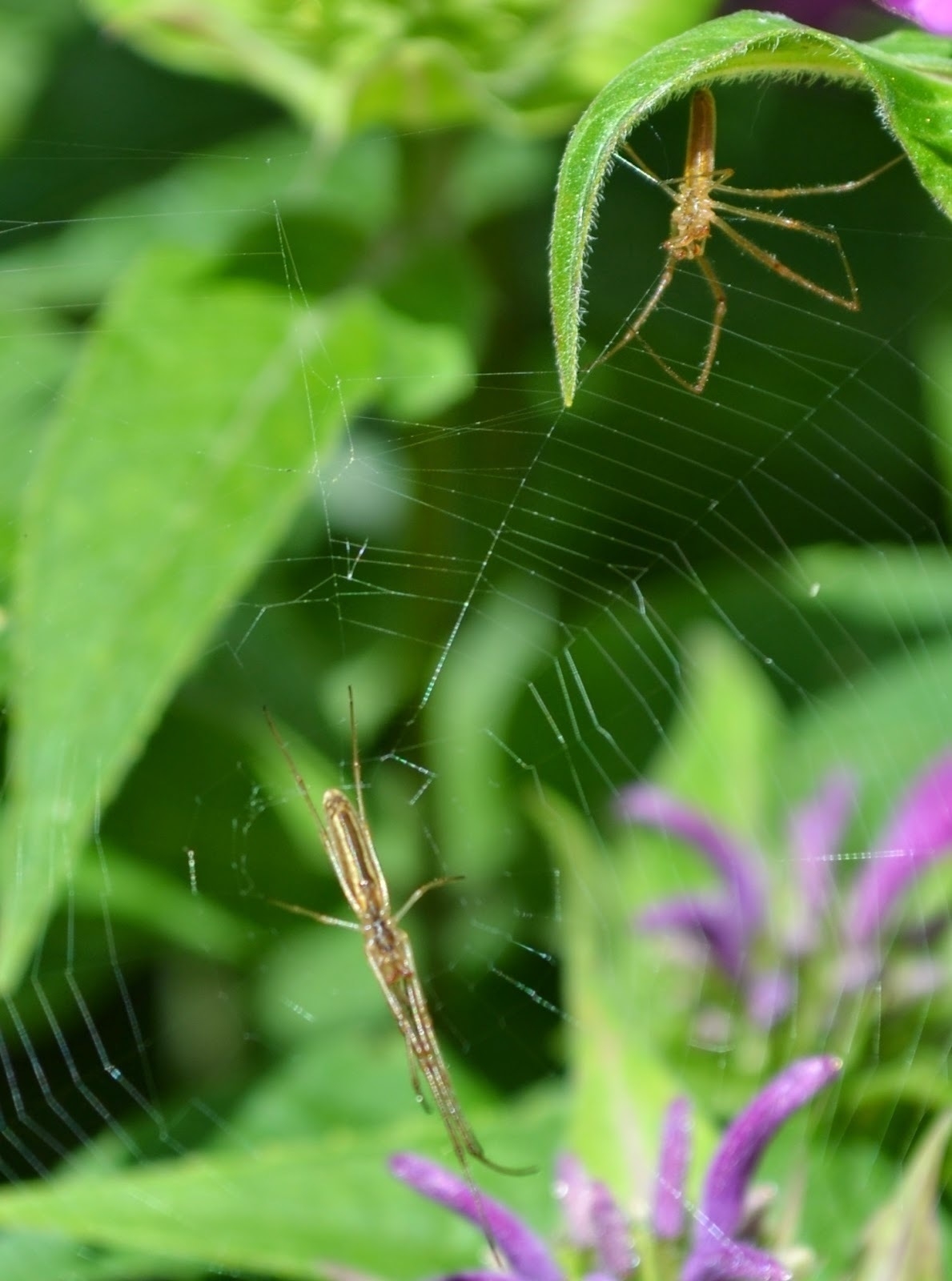 |
| Two long-jawed orb-weavers in my garden. |
The plot is only about a square meter, but these plants provide habitat and hunting grounds for numerous orb-weavers, jumping spiders, and funnel-web spiders. It's a treat to find an argiope or a goldenrod spider in these places. They may be deadly to insects, but they're a beautiful part of the ecosystem.
In the first photo you can see, in the lower left, a long-jawed orb weaver. If you look to the upper right, you'll see another.
Here's what happened: a small biting fly landed on my leg while I was watching the spiders, and it bit me. I flicked it off, and it landed on this web. For a moment, the spiders did nothing while the fly tried to disentangle itself. I couldn't help thinking of karma.
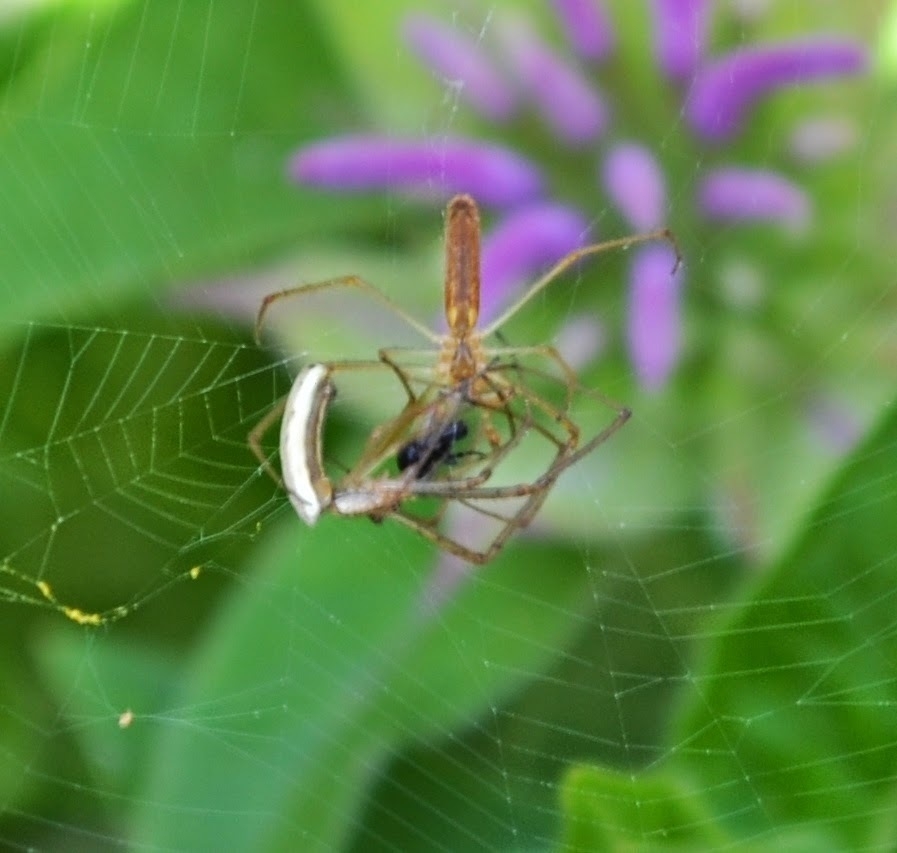 |
| One spider rushed in to seize the other when it went for the fly. |
In the third photo you can see that the spiders are entirely engrossed with each other, while the fly is being ignored by them. The two spiders remained tangled like this for a while, without moving. Eventually, I was being bitten by too many flies and so I left.
Half an hour later I came back with my camera to see how it had gone. I was sure the spider that built the web would be dead, since it appeared to have been at a disadvantage in the fight.
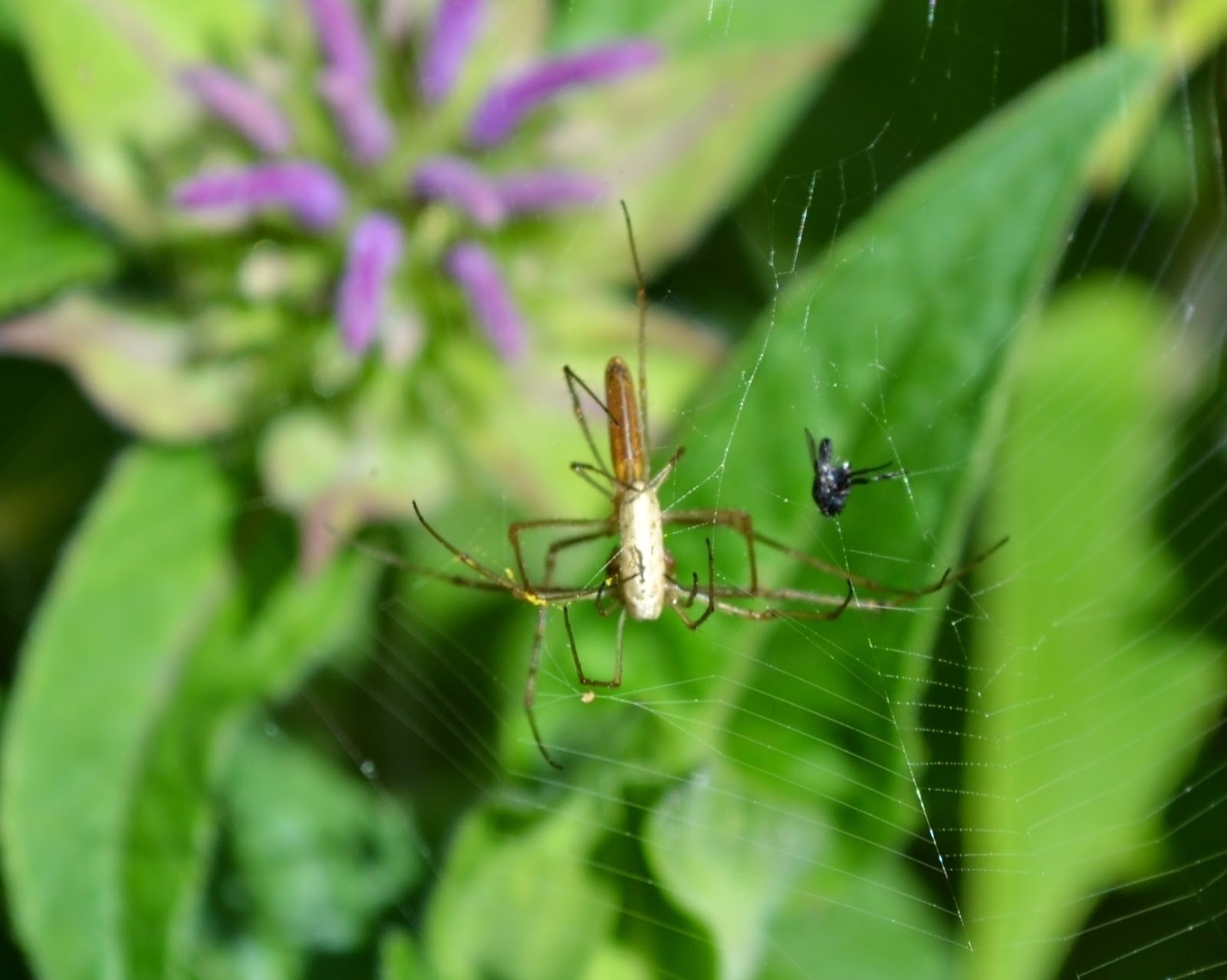 |
| Here they are ignoring the fly and grappling with each other. |
The best part of this is discovering something new that was going on in my own garden about which I know next to nothing. Since then I've been poring over books and doing web searches when I have spare time. If you know more about this species and what was going on here, I'd love to hear from you.
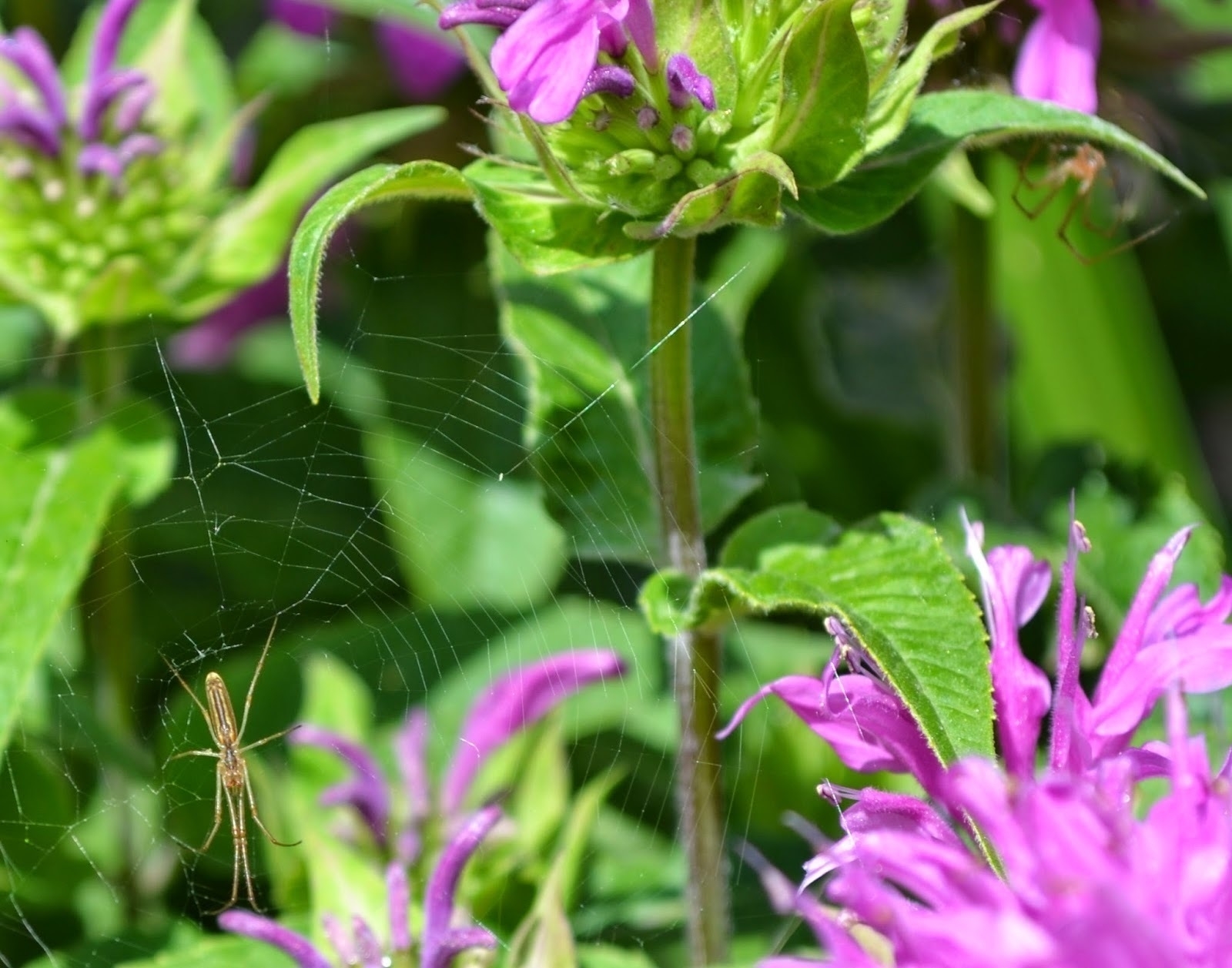 |
| And then they returned to their earlier positions. |
Vertical Art
If I were more cynical I would imagine that the CEO of a search firm would like to limit civilian surveillance so that searches for visual information has to be channeled through a firm that specializes in searches. Fortunately, I am not very cynical.
Instead, I'm feeling quite charitable. Since I also recently read that piloting a drone is boring work, I think we should start new public art projects for the benefit of those doing surveillance. Until recently, we have viewed ourselves horizontally: we care about how we look from the ground, from eye-level. Maybe we should start to care more about how we look from the bird's-eye-level.
We could start with rooftop art, and move up to something like new Nazca Lines. Then all those drone pilots and satellite image analysts could have something more interesting to look at. Art is good for us. Rather than asking "who is watching the watchmen?" let's ask "what are the watchmen watching?" We should give them something worth seeing. I'm going to start by planting flowers.
 |
| Yeah, but what does the roof look like? |
